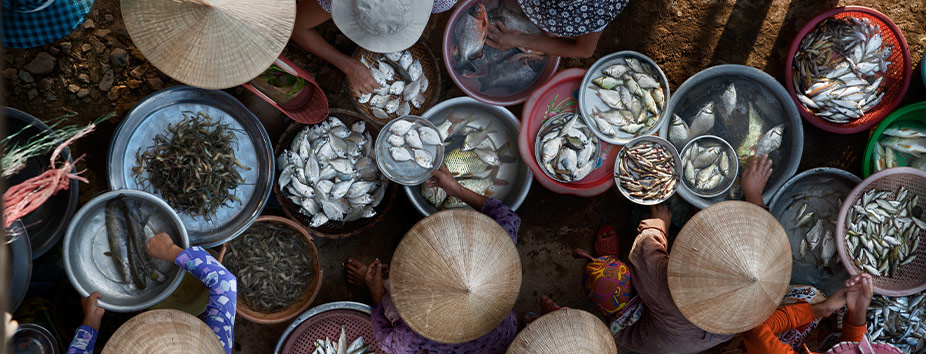Feeding the world

The aquaculture industry is set to become a leading light in the urgent global undertaking to achieve food security.

The aquaculture industry is set to become a leading light in the urgent global undertaking to achieve food security.
Words: Jill Fraser
Food security is defined by the UN Food and Agriculture Organization (FAO) as a condition "when all people, at all times, have physical and economic access to sufficient, safe and nutritious food to meet their dietary needs and food preferences for an active and healthy life".
At present, the FAO estimates that 795 million people worldwide are chronically undernourished, according to 'The State of Food Insecurity in the World 2015' report. More than one billion people rely on fish as their primary source of animal protein, and forecasts indicate that this demand will continue to rise.
So the FAO is looking to aquaculture, the fastest-growing food sector in the world, to provide a solution.
At the world's intergovernmental forum on fisheries and aquaculture issues in June last year, José Graziano da Silva, Director-General of the FAO, declared that fisheries and aquaculture represent a "central contribution to food security" but warned that "overfishing, pollution and climate change are putting this vitality at risk".
Presently, the world produces 160 million tonnes of seafood each year, but the Assistant Director-General of the FAO Fisheries and Aquaculture Department, Árni Mathiesen, says the world will want to consume 260 million tonnes by the year 2030, according to OECD-FAO outlooks.
"To get that result we need to produce more fish," he says. "[Aquaculture is] the most important pathway to meet the challenge of bridging the 100-million gap."
At current growth rates, aquaculture could produce an additional 50 million tonnes of fish annually, while wild catch only has the potential to increase by 10-20 million tonnes a year. However, Mathiesen cautions that this result will only be possible with sustainable aquaculture solutions that react well to the inevitable challenges of climate change and are socially, economically and environmentally responsible. So, is aquaculture sustainable?
"From the point of view of an ecological footprint, aquaculture does very well compared to terrestrial animal protein food systems," says Mathiesen. "The facts show that there are less environmental constraints to producing fish sustainably by aquaculture than other forms of protein."
John Mosig, formerly of the Victorian Aquaculture Council, agrees: "There is no doubt aquaculture is going to play a major role in global food security into the future.
"The industry has come a long way since the 1980s, particularly over the past 10 years. Increasingly we're seeing fish farmed in a more sustainable way. Climate-controlled sheds and water recycling are among many positive changes, but the big leap forward is coming from nutrition and genetics … There is a huge research effort going into developing sustainable sources of ingredients other than relying on the harvest of wild fish."
Concerns about harvesting wild fish to use as fishmeal in aquaculture are, according to Peter Horvat, Communications Manager at Fisheries Research and Development Corporation, "a big furphy".
"Not all fish need fishmeal to grow and survive-many are very able to grow on vegetable matter," he says. "It all comes down to whether the grower wants a high omega-3 level or not."
Looking to the future, aquaculture has a vital role to play in improving food security. But governments and the private sector will need to cooperate to ensure that new technologies are adopted early enough to sustainably intensify production.
At a meeting in Rome in October 2014 the Committee on World Food Security (CFS), an intergovernmental body that was established in 1974 to coordinate a global approach to food security, met to affirm the significance of the role of fisheries and aquaculture in achieving global food security.
The CFS resolved to: